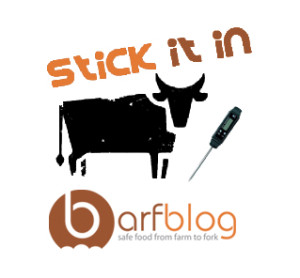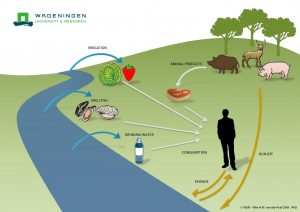NSW Health is urging members of the public to thoroughly cook pork products, particularly pork livers, after three recent notifications of Hepatitis E in NSW in people who have not travelled outside Australia.
 NSW Health – in collaboration with the NSW Food Authority and the Department of Primary Industries – is investigating the cases which were recorded over the past few days.
NSW Health – in collaboration with the NSW Food Authority and the Department of Primary Industries – is investigating the cases which were recorded over the past few days.
Dr Jeremy McAnulty, the Director of Health Protection with NSW Health, said three individuals have likely contracted the illness after consuming either pork liver or pork liver sausages that may not have been properly cooked at home.
“Hepatitis E virus has previously been identified in Australian pig herds but until recently there has been no evidence that humans have acquired the virus from pork products in Australia,” Dr McAnulty said.
“Hepatitis E is common in developing countries where there is poor sanitation and little access to clean drinking water. Although infections have been linked to the consumption of pork products in other developed countries, this has not been seen in Australia before.
“In 2010 there were 14 notifications of Hepatitis E in NSW, in 2011 there were 21 notifications and in 2012 there were 10 notifications – all of which were thought to have been acquired overseas.
“Last year there were 19 notifications of the virus across the State and for the first time included a small number which were acquired locally.
“So far this year there have been 27 notifications, many without a history of overseas travel but with a history of eating pork particularly pork liver during the time they were likely exposed to the virus.”
 Dr Lisa Szabo, Chief Scientist NSW Food Authority, said any raw food product has an element of food safety risk unless it is correctly handled and prepared.
Dr Lisa Szabo, Chief Scientist NSW Food Authority, said any raw food product has an element of food safety risk unless it is correctly handled and prepared.
“Undercooking pork livers and poor handling of them can be dangerous,” Dr Szabo said.
“Cooking livers all the way through will reduce the risk of contracting Hepatitis E virus or other organisms.”
Potentially harmful viruses and bacteria that may be associated with pork livers are all destroyed by thorough cooking and proper handling.
Pork livers need to be cooked all the way through to kill any organisms that may be present – lightly searing the surface is not enough.
Cook to 75°C at the centre of the thickest part for at least two minutes as measured using a digital probe meat thermometer before removing meat from the heat source. Allow livers to rest for at least three minutes before consuming.
It is also important to handle pork livers in a way to avoid cross-contamination.”
To avoid cross-contamination (where particles from raw food come into contact with ready-to-eat foods), it is very important to:
- wash your hands in hot soapy water and dry thoroughly before preparing food and after touching raw meat;
- make sure juices from raw meat do not come into contact with other foods
- thoroughly clean all utensils, equipment and surfaces after preparing raw meat and before contact with other foods;
- if possible use a separate cutting board and knife specifically for raw meat;
- store raw meat at the bottom of the fridge so juices can’t drip onto other foods; and
- keep uncooked raw meat away from other ready-to-eat foods that will not be cooked.
 This means that ingesting raw pork liver could mean you’re ingesting a strain of HEV that’s similar enough to human HEV that it could cause you get infected.
This means that ingesting raw pork liver could mean you’re ingesting a strain of HEV that’s similar enough to human HEV that it could cause you get infected.

